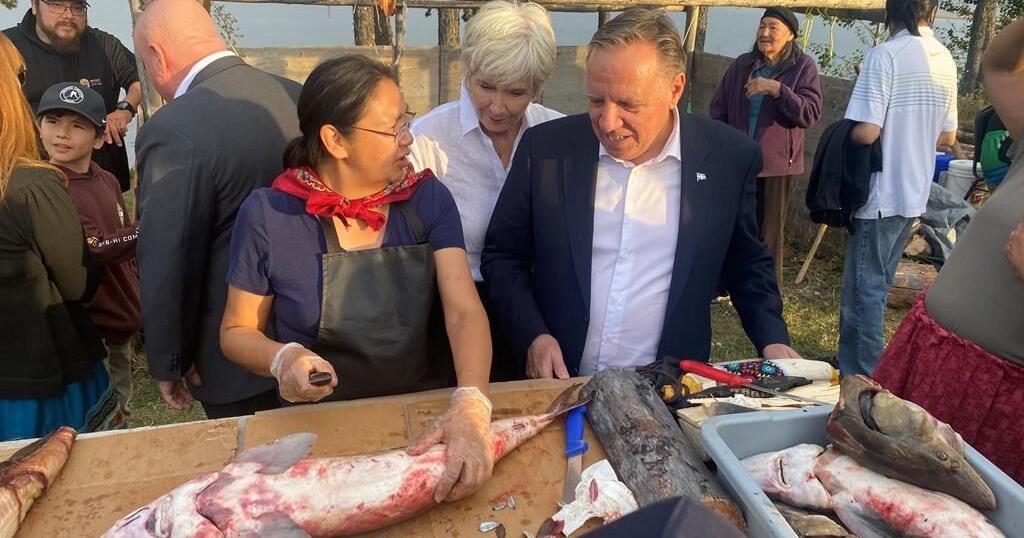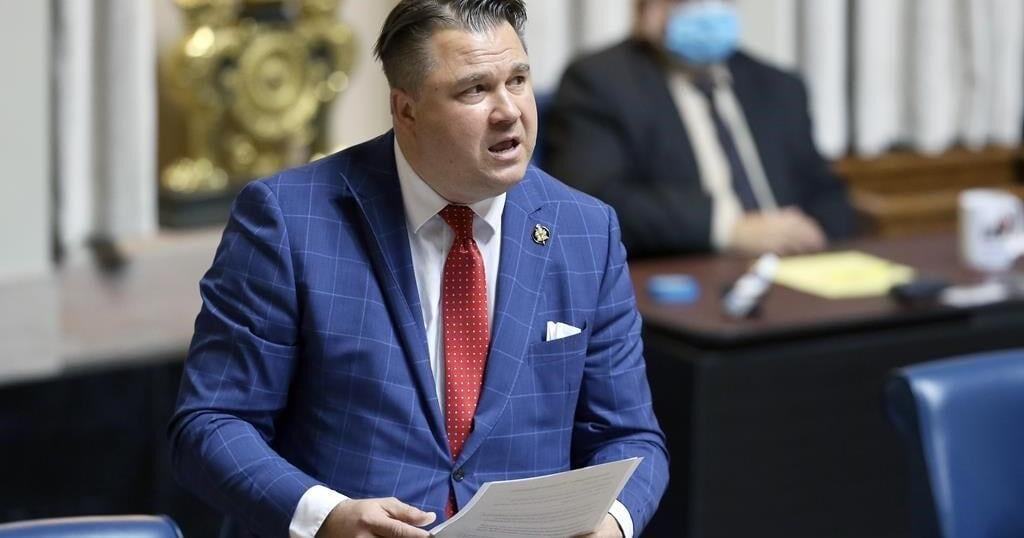NEMASKA – For the first time in their history, members of the Cree community of Nemaska received a visit from a sitting Quebec premier on Sunday and were able to share first-hand the story of how they were displaced by a hydroelectric project in the 1970s.
François Legault was greeted in Nemaska by men and women who arrived by canoe to re-enact the founding of their new village in the Eeyou Istchee James Bay region, in northern Quebec, 47 years ago. The community was forced in the early 1970s to move from their original location because they were told it would be flooded as part of the Nottaway-Broadback-Rupert hydro project.
The reservoir was ultimately constructed elsewhere, but by then the members of the village had already left for other places, abandoning their homes and many of their belongings in the process.
George Wapachee, co-author of the book “Going Home,” said community members were “relocated for nothing.”
“We didn’t know what the rights were, or who to turn to,” he said in an interview. “That turned us into refugees and we were forced to abandon the life we knew.”
The book, published in 2022 by Wapachee and Susan Marshall, is filled with stories of Cree community members. Leaving behind sewing machines and hunting dogs, they were initially sent to two different villages, 100 and 300 kilometres away, Wapachee said.
In their new homes, several of them were forced to live in “deplorable conditions,” and some were physically and verbally abused, he said. The new village of Nemaska was only built a few years later, in 1977.
“At this time, families were losing their children to prison-schools,” he said, in reference to the residential school system. “Imagine the burden of losing your community as well.”
Legault’s visit came on Sept. 15, when the community gathers every year to remember the founding of the “New Nemaska,” on the shores of Lake Champion in the heart of the boreal forest, some 1,500 kilometres from Montreal. Nemaska Chief Clarence Jolly said the community invited Legault to a traditional feast on Sunday, and planned to present him with Wapachee’s book and tell him their stories.
Thomas Jolly, a former chief, said he was 15 years old when he was forced to leave his village with all his belongings in a single bag.
Meeting Legault was important “because have to recognize what happened and we have to talk about the repercussions that the relocation had on people,” he said, adding that those effects are still felt today.
Earlier Sunday, Legault had been in the Cree community of Eastmain, where he participated in the official renaming of a hydro dam in honour of former premier Bernard Landry.
This report by The Canadian Press was first published Sept. 16, 2024.


























